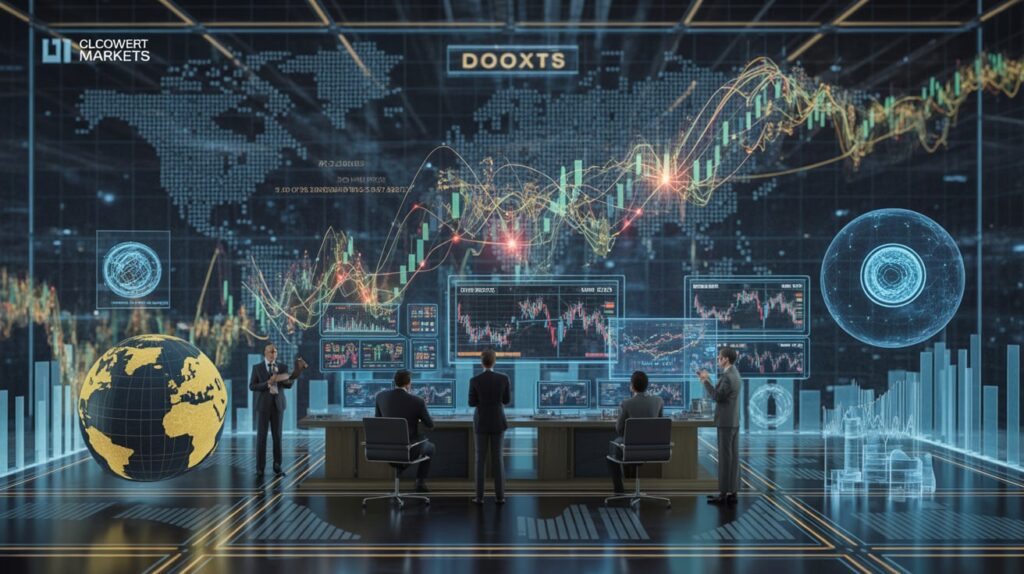Business world is moving fast and nothing stay the same for long time. Companies that are big today can be gone tomorrow if they not watch carefully. That is why having right industry insights matter so much. Leaders and even small entrepreneurs now need to keep eye on everything from market disruption trends to technology driven change.
The future is coming fast and it dont wait for anyone. Every sector, from healthcare to retail to finance, is facing massive shifts. Some of these changes bring big opportunities while others bring big challenges. The question is, who will be ready and who will be left behind.
Market Disruption Trends Changing Everything
Disruption is not new, but today it happen much quicker. Before, a company had maybe 10 years to adapt. Now disruption can destroy a market in less than 2 years.
Look at transport industry. Ride sharing apps suddenly change how people think about owning a car. Taxi businesses that ruled cities for decades collapsed in just few years.
Retail sector same story. Online shopping was slowly growing but then pandemic hit. Suddenly e-commerce became lifeline. Even small mom and pop stores had to learn selling online. Those who refused, many are gone.
The real lesson is no market is safe. Every business should assume that disruption is already knocking. If you dont innovate someone else will. That is why industry insights are like radar. They help you see early signs before wave crash on you.
Future of Work and Workforce Expectations
Another massive shift is the future of work. People are not working the same way they use to. Offices are no longer the center of all activity. Remote work and hybrid models are now normal for many industries.
Employees are asking for flexibility. They want choice to work from home some days and still be productive. Companies who dont allow this risk losing talent. Young workers especially value culture and balance even more than salary sometimes.
Technology is taking many old jobs but also creating new ones. AI, automation, digital marketing, cybersecurity all growing areas. But this also mean workers need to reskill again and again. Having one degree is not enough anymore. Continuous learning is the real survival skill now.
Another challenge is building culture with remote teams. How do you create trust when workers maybe never even meet in person. Leaders need to rethink management style, use communication tools smartly, and still make people feel connected.
Sector Specific Innovations Shaping Industries
Different industries are facing their own unique transformations. These sector specific innovations are shaping future of each field.
Healthcare is now entering digital era. Telemedicine is common, patients can meet doctors on video. Wearable devices measure heart rate, sugar level, even sleep quality. Doctors now treat people with data from devices not just hospital visits.
Manufacturing is going high tech too. Robotics and 3D printing are speeding up production. A prototype that once took weeks now made in days. Customization is also easier.
Education industry completely shifted. Online platforms are no longer second option, for many they are first choice. Big universities now compete with global digital platforms. A person in Africa can attend US lectures without leaving home.
Even agriculture is changing. Smart irrigation systems, drones flying over farms, AI predicting weather and soil conditions. Farmers now mix tradition with technology to feed more people with less resources.
These examples prove innovation is not locked to Silicon Valley. It happening everywhere.
Technology Driven Change Everywhere
Almost every market disruption trend is pushed by technology. Tech is like fuel, burning under all industries.
Artificial intelligence is strongest driver. It is used in customer service chat, predicting inventory needs, personalizing shopping. Businesses that use AI smartly are already ahead.
Blockchain is another innovation that is moving beyond crypto. Transparent supply chain, contracts that cannot be changed, digital identity verification. These are only some uses.
Cloud computing changed how business spend money. Instead of building expensive servers companies just rent software and storage. This make scaling cheaper and faster.
But the real shift is not tools only. It is mindset. A company that see technology as cost is always behind. The one that see it as growth investment always move ahead.
Competitive Landscape Analysis and Global Race
Competition is not only local anymore. Your competitor might not be in your city but in another country selling online to same customers. That is why competitive landscape analysis is bigger challenge now.
It is not enough to just check prices. You need to study how they talk to customers, what values they project, how they use technology. Social media makes it easier to spy but also harder to hide mistakes.
Data analysis is critical. Companies track not only their own customers but also feedback about competitors. If competitor is failing somewhere, smart businesses grab that chance to win those unhappy customers.
But best weapon is differentiation. If you dont show why you are different, people will always choose cheapest. That difference can be quality, speed, values, innovation, customer care. It must be clear and strong.
The battlefield is now global and only the adaptable will win.
Connecting the Dots: What This Means for Future
When we put together all these industry insights a pattern become clear. Markets are unstable, workforce changing, sectors innovating in unique ways, technology fueling everything, and competition getting global.
For businesses, the only option is adaptability. If you wait for stability you will be waiting forever. Leaders need to accept that change is constant.
So what is needed now. Build flexible strategies. Train people continuously. Invest in new technologies. Watch disruption not as danger but as early warning system. Act fast and smart.
The companies that will win future are not necessarily biggest. They are the ones who can turn fast, adjust and keep moving forward even when everything look uncertain.
Conclusion
The future of business is shaped by speed. Speed of disruption, speed of technology adoption, speed of workforce expectations, speed of global competition. Those who move quick but smart will dominate.
Every industry is rewriting itself. Healthcare, manufacturing, retail, finance, education, agriculture. No one is untouched.
To survive, leaders need more than ambition. They need vision and courage to embrace the shifts. And above all, they need to see industry insights not as information but as guide to take right actions.
Tomorrow’s winners are not waiting. They are already preparing today.




